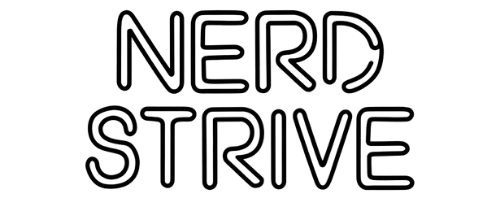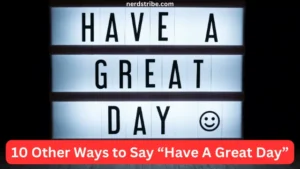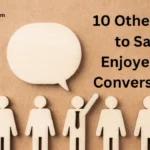Communication is the backbone of modern life, especially in professional and digital interactions. Yet, there’s one phrase that pops up over and over again in emails, texts, and business conversations: “Waiting for your response.” While it gets the job done, it can come across as repetitive or even slightly impatient if overused.
If you’ve ever felt the need to follow up on a conversation without sounding robotic or overly demanding, you’re not alone. Finding new ways to express this sentiment can make your communication feel more thoughtful and engaging. Words have power, and how you phrase your follow-up can influence how quickly and positively someone responds.
This blog will explore 10 creative alternatives to “Waiting for your response” that fit different tones and contexts. Whether you want to sound professional, friendly, or approachable, these alternatives will elevate your messages and keep the conversation flowing smoothly.
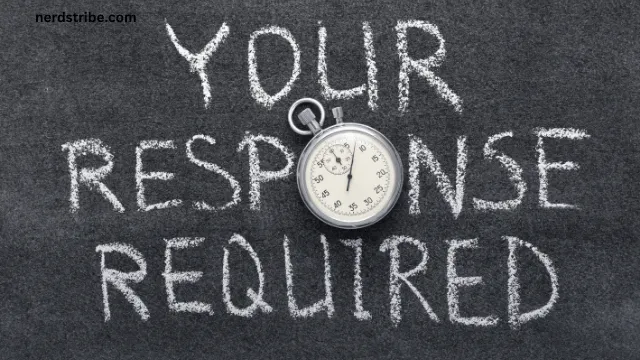
Contents
- 1 1. Looking Forward to Hearing from You
- 2 2. I Appreciate Your Prompt Reply
- 3 3. Please Let Me Know at Your Earliest Convenience
- 4 4. Awaiting Your Feedback
- 5 5. When You Have a Moment, Please Let Me Know
- 6 6. Just Checking In
- 7 7. Let Me Know How You’d Like to Proceed
- 8 8. Hoping for Your Response Soon
- 9 9. I’d Appreciate Your Input
- 10 10. Please Get Back to Me When You Can
- 11 Conclusion
- 12 FAQs
- 12.1 Why should I avoid overusing “Waiting for your response”?
- 12.2 Which alternative works best for professional emails?
- 12.3 What’s a good casual alternative for friends or colleagues?
- 12.4 Can these phrases be used in text messages?
- 12.5 How do I ensure my message gets a quick response?
- 12.6 What if I still don’t get a reply?
1. Looking Forward to Hearing from You
A polite and optimistic way to signal you’re expecting a reply.
- Key Meaning: Shows anticipation without pressure.
- Usage: Ideal for professional and formal communication.
- Example: “Looking forward to hearing from you regarding the proposal.”
- Why It’s Effective: It conveys enthusiasm and sets a positive tone.
2. I Appreciate Your Prompt Reply
Adds a sense of urgency while remaining polite.
- Key Meaning: Encourages timely communication without sounding harsh.
- Usage: Works well in time-sensitive situations.
- Example: “I appreciate your prompt reply to finalize the meeting details.”
- Why It’s Effective: It shows respect for the recipient’s time while requesting urgency.
3. Please Let Me Know at Your Earliest Convenience
Balances courtesy with a request for a timely response.
- Key Meaning: Highlights the importance of the reply while showing patience.
- Usage: Perfect for formal contexts where flexibility is required.
- Example: “Please let me know at your earliest convenience if these dates work for you.”
- Why It’s Effective: It combines professionalism with understanding.
4. Awaiting Your Feedback
A direct and professional way to request a response.
- Key Meaning: Clearly states that you’re waiting for input or comments.
- Usage: Best for feedback on documents, proposals, or ideas.
- Example: “Awaiting your feedback on the revised draft.”
- Why It’s Effective: It’s concise and to the point, making it clear what’s needed.
5. When You Have a Moment, Please Let Me Know
Keeps the tone casual and non-pressuring.
- Key Meaning: Shows consideration for the recipient’s time and schedule.
- Usage: Ideal for informal or semi-formal interactions.
- Example: “When you have a moment, please let me know your thoughts on the design.”
- Why It’s Effective: It feels approachable and considerate.
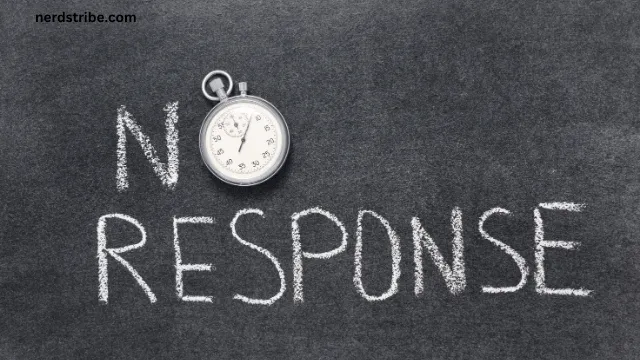
6. Just Checking In
A casual follow-up that feels conversational.
- Key Meaning: Ensures the message doesn’t feel forgotten while being polite.
- Usage: Suitable for informal communication or friendly reminders.
- Example: “Just checking in to see if you had a chance to review my email.”
- Why It’s Effective: It’s friendly and avoids coming across as pushy.
7. Let Me Know How You’d Like to Proceed
Positions the recipient as the decision-maker.
- Key Meaning: Invites the other person to take the next step.
- Usage: Great for collaborative projects or decision-making discussions.
- Example: “Let me know how you’d like to proceed with the project timeline.”
- Why It’s Effective: It’s empowering and collaborative, encouraging action.
8. Hoping for Your Response Soon
Conveys urgency without being demanding.
- Key Meaning: Politely signals the need for a reply soon.
- Usage: Best for follow-ups after initial contact.
- Example: “Hoping for your response soon regarding the shipment update.”
- Why It’s Effective: It balances politeness with a sense of urgency.
9. I’d Appreciate Your Input
Shows value for the recipient’s opinion or feedback.
- Key Meaning: Makes the recipient feel their response is important.
- Usage: Suitable for collaborative or feedback-oriented conversations.
- Example: “I’d appreciate your input on the budget proposal before we proceed.”
- Why It’s Effective: It fosters a sense of collaboration and importance.
10. Please Get Back to Me When You Can
A flexible and considerate alternative.
- Key Meaning: Leaves room for the recipient’s timing while requesting a reply.
- Usage: Effective for non-urgent matters or casual communication.
- Example: “Please get back to me when you can regarding the updated schedule.”
- Why It’s Effective: It’s accommodating and avoids creating pressure.
Conclusion
Expressing “Waiting for your response” in new and varied ways can transform how your messages are received. A thoughtful alternative can make your communication feel more engaging, professional, or approachable, depending on the context. Whether you’re writing a business email or a friendly follow-up, these phrases give you the flexibility to adapt your tone.
By using these alternatives, you demonstrate attention to detail and respect for the recipient’s time. This not only increases the likelihood of a prompt reply but also fosters better relationships. So, the next time you’re tempted to type “Waiting for your response,” try one of these creative phrases and watch how it improves your communication.
FAQs
Why should I avoid overusing “Waiting for your response”?
Repeating the same phrase can make your communication feel monotonous and impersonal
Which alternative works best for professional emails?
“Looking forward to hearing from you” and “Awaiting your feedback” are great for professional settings.
What’s a good casual alternative for friends or colleagues?
“Just checking in” or “When you have a moment, please let me know” are friendly and non-pressuring.
Can these phrases be used in text messages?
Yes, most of these alternatives work perfectly in both texts and emails, depending on the tone.
How do I ensure my message gets a quick response?
Be clear about what you need and when, while keeping the tone polite and respectful.
What if I still don’t get a reply?
Follow up with a gentle reminder or escalate if the matter is urgent, using phrases like “I’d appreciate your input soon.”
